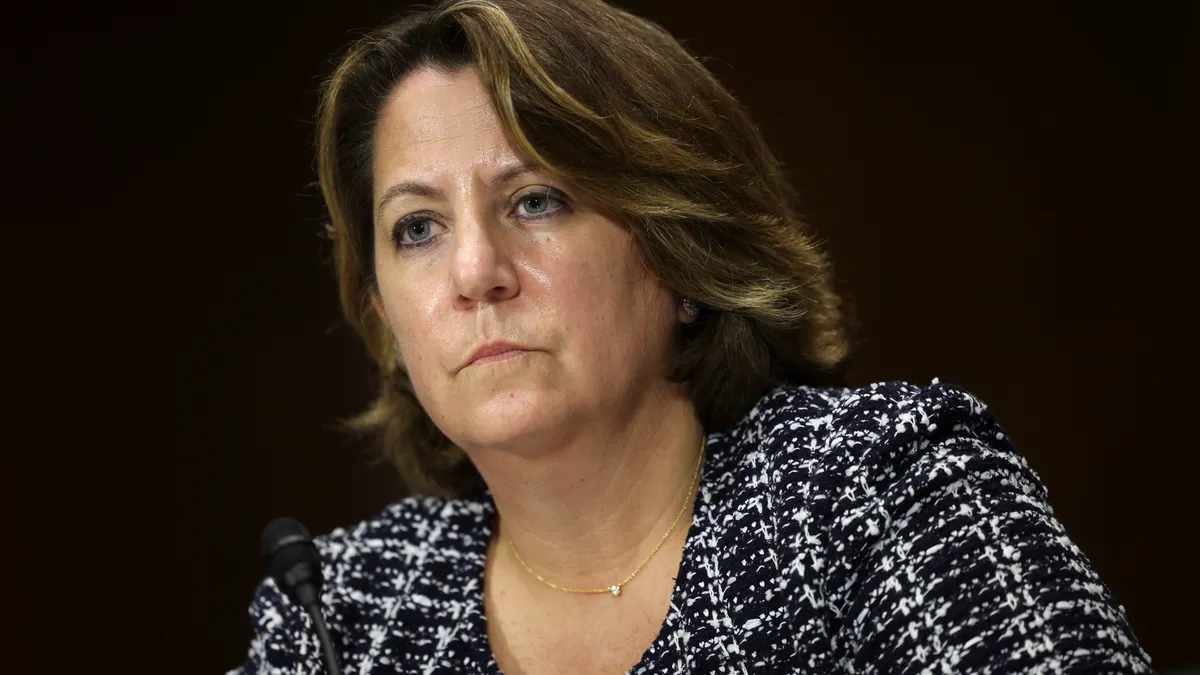Dive Brief:
- More than a dozen public interest groups say the Department of Justice shouldn’t give companies a safe harbor from prosecution if, in the course of an acquisition, they uncover misconduct in the target company and disclose that to DOJ after the deal closes.
- DOJ’s self-disclosure policy, the coalition says in a letter to the agency last week, “will incentivize more concentration of corporate power through strategically timed mergers or acquisitions sought in order to wipe the slate clean for lawbreakers.”
- But DOJ is pushing back. The policy “increases our ability to hold individuals accountable,” Acting Assistant Attorney General Nicole Argentieri said in late October, Reuters reported. Reuters was also the first to report the coalition letter, which had not been made public as of October 31.
Dive Insight:
The criticism by Public Citizen and Demand Progress, among other progressive policy groups that signed the letter, is aimed at a policy DOJ launched about a year ago in which it promises companies it won’t prosecute, or at least will reduce penalties in a prosecution, if they self-disclose misconduct rather than wait for regulators to discover it.
In the latest addition to the policy, the agency in mid-October said it would give an acquiring company six months after closing a merger or acquisition to report any misconduct it discovers in the target in the course of its due diligence.
The six-month deadline applies even if the acquirer discovers the misconduct months before the deal closes.
In addition to disclosure, the acquirer has a year to take remedial action to address the misconduct it found.
If it does those two things, the DOJ says, it won't prosecute, although it might still take action against the target if there are aggravating factors, which the agency has said in other contexts could include recidivism or top executive involvement.
The goal is to leverage the due diligence that acquiring companies conduct when buying or merging with another company so DOJ can know about misconduct and offer incentives for the companies to take measures on their own.
DOJ “recognizes the potential benefits of corporate mergers and acquisitions, particularly when the acquiring entity has a robust compliance program in place,” the agency says in its self-disclosure policy.
The public interest groups, as reported by Reuters, see the policy as a way for bad-acting companies to merge their way out of trouble before it gets on DOJ’s radar screen, effectively giving them a free pass. They call on agency leadership, including Deputy Attorney General Lisa Monaco, pictured above, to reverse the policy.
In defense of the policy, DOJ’s Argentieri said last week that the policy doesn’t let the bad-acting company off the hook. The safe harbor only applies if the companies correct the action and put in controls to stop it from happening again. That accomplishes what the agency is seeking and lets it know who the bad actors are so it can keep tabs on them.
"The company has to fully cooperate and provide all information it has about individuals involved in the misconduct," she said.











